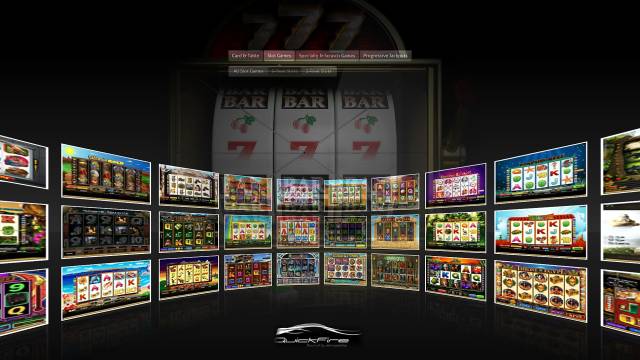
Most of the regular Casinoz readers are enthusiasts who regularly play for money. Some of them are customers of online casinos; others prefer land-based casinos, betting, poker, and other types of gambling entertainment.
Also, our online gambling guide attracts former and current casino employees:
- dealers,
- inspectors,
- pit bosses,
- and managers.
Also, we are visited by developers of software, gaming platforms, and affiliate programs.
The Art and Science of Casino Management
Casino management is a unique and multifaceted field that merges business acumen, hospitality expertise, and regulatory knowledge to create an environment where entertainment thrives. At the heart of this vibrant industry are the professionals who ensure that every aspect of the casino—from gaming floors to restaurants and customer service—is optimized for profitability and player satisfaction.
With the global casino market generating billions in revenue annually, effective management is essential for maintaining a competitive edge and upholding the trust of players and regulatory bodies. Modern casinos are no longer just about games of chance. They encompass complex operations, including marketing, security, financial oversight, and cutting-edge technology.
Articles in this Casinoz section explore the essential elements of casino management, shedding light on the roles, responsibilities, challenges, and innovations that define this dynamic industry.
Key Roles in Casino Management
Running a casino involves a finely tuned symphony of roles, each contributing to the seamless operation of a complex and dynamic environment. Below are the primary roles that form the backbone of effective casino management.
General Manager
The General Manager oversees the casino's operation, ensuring that all departments work cohesively to achieve strategic goals. They are responsible for setting the tone of the establishment, from financial planning to customer satisfaction.
Key Responsibilities:
-
Developing and implementing long-term strategies.
- Managing relationships with stakeholders, including owners and regulatory bodies.
- Monitoring overall performance metrics and making high-level decisions.
Gaming Operations Manager
This role focuses on the casino's core gaming activities, including table games, slots, and sports betting operations.
Key Responsibilities:
Finance and Accounting Team
The financial health of a casino depends on meticulous budgeting, accurate accounting, and revenue tracking.
Key Responsibilities:
Attracting and retaining players is a top priority in the competitive casino industry. The marketing team devises strategies to enhance the casino’s visibility and appeal.
Key Responsibilities:
Security and Surveillance Team
Security is paramount in any casino to protect assets and ensure a safe environment for guests and employees.
Key Responsibilities:
Customer Service and Hospitality Manager
Casinos are as much about the experience as they are about gaming. The customer service team ensures that players feel valued and enjoy their time.
Key Responsibilities:
-
Addressing customer concerns and complaints promptly.
- Overseeing accommodations for VIP guests.
- Enhancing the overall guest experience through personalized services.
While distinct, these roles are deeply interconnected. Together, they form the foundation of casino management, ensuring that every department contributes to the operation's success. Effective collaboration among these roles is critical to maintaining a thriving casino business.
Core Responsibilities of Casino Management
A casino's success hinges on its ability to balance diverse responsibilities that ensure operational efficiency, financial stability, customer satisfaction, and regulatory compliance. Below are the primary areas of focus for effective casino management.
1. Operational Efficiency
Smooth operations are critical for creating a seamless player experience and optimizing internal workflows.
Key Aspects:
-
Streamlining daily processes across gaming, hospitality, and administrative departments.
- Coordinating between teams to ensure minimal downtime and efficient service delivery.
- Monitoring key performance indicators (KPIs) to identify and resolve bottlenecks.
2. Regulatory Compliance
Casinos operate within a highly regulated industry, requiring strict adherence to local and international gambling laws.
Key Aspects:
-
Ensuring all games and operations meet legal standards for fairness and transparency.
- Keeping licenses up to date and maintaining thorough records for audits.
- Training staff to comply with anti-money laundering (AML) policies and responsible gambling protocols.
3. Financial Oversight
Financial management is at the core of any casino operation, ensuring profitability while minimizing risks.
Key Aspects:
-
Budgeting for operational expenses and allocating resources effectively.
- Monitoring revenue streams from gaming, hospitality, and other sources.
- Conducting regular financial audits to detect irregularities or inefficiencies.
4. Staff Training and Management
A well-trained and motivated workforce is essential for delivering exceptional service and ensuring operational excellence.
Key Aspects:
-
Recruiting skilled staff for various roles, from dealers to IT specialists.
- Conducting regular training sessions on customer service, gaming rules, and regulatory compliance.
- Implementing performance evaluation systems to reward excellence and address underperformance.
5. Risk Management
Casinos face unique risks, including fraud, security breaches, and operational disruptions.
Key Aspects:
-
Deploying robust surveillance systems to detect cheating or theft.
- Developing contingency plans for potential emergencies, such as cyberattacks or natural disasters.
- Maintaining insurance coverage to protect against financial losses.
6. Customer Engagement
Creating a positive and memorable experience for players is key to fostering loyalty and attracting new patrons.
Key Aspects:
-
Offering personalized services, such as tailored bonuses and VIP perks.
-
Implementing feedback systems to gauge customer satisfaction and address complaints.
- Enhancing the ambiance and amenities of the casino to appeal to a diverse clientele.
These responsibilities require a strategic approach and the ability to adapt to the evolving needs of the industry.
You can learn a lot from these online casinos.
Technology in Casino Management
The integration of advanced technology has revolutionized casino operations, allowing for greater efficiency, security, and customer engagement. Below are the key technological tools and systems shaping modern casino management.
1. Casino Management Systems (CMS)
A CMS is the backbone of a casino's operations, providing centralized control over multiple business aspects.
Key Features:
-
Tracking gaming floor activity, including table games and slot machines.
- Managing player accounts, rewards programs, and promotional campaigns.
- Generating detailed performance and revenue reports.
Benefits:
-
Streamlines operations, saving time and resources.
- Provides real-time insights into customer behavior and operational performance.
2. Artificial Intelligence and Analytics
AI and advanced data analytics transform how casinos understand and interact with their customers.
Applications:
-
Predicting player preferences and customizing offers through data-driven insights.
- Detecting fraudulent activities or unusual patterns in gameplay.
- Optimizing marketing strategies by analyzing customer demographics and behavior.
Benefits:
-
Enhances personalization and improves customer satisfaction.
- Reduces risks associated with fraud and regulatory violations.
3. Surveillance Technology
Security remains a top priority, and modern surveillance tools are critical in maintaining fairness and safety.
Key Features:
-
High-definition cameras with AI-powered facial recognition to monitor players and staff.
- Automated systems to identify suspicious behavior or cheating in real-time.
- Integration with CMS to flag irregularities for immediate review.
Benefits:
-
Strengthens security and minimizes risks of theft or fraud.
- Builds trust with players by ensuring a fair gaming environment.
4. Cashless Payment Systems
The shift toward cashless transactions is gaining momentum in casinos. It offers greater convenience for players and operational benefits for management.
Key Features:
-
Digital wallets, mobile apps, and contactless payment methods.
-
Seamless integration with loyalty programs for reward tracking.
- Enhanced transparency and compliance with anti-money laundering (AML) regulations.
Benefits:
-
Reduces overhead costs associated with handling cash.
-
Provides a secure and efficient payment experience for players.
5. Online Integration and Remote Management
Technology enables seamless integration between physical and digital platforms for casinos with online operations.
Key Features:
-
Unified databases for managing player profiles across land-based and online casinos.
- Real-time tracking of online gameplay and wagering activities.
- Tools for managing remote customer service and dispute resolution.
Benefits:
-
Expands market reach and attracts tech-savvy players.
- Allows for greater flexibility and scalability in operations.
6. Sustainability and Green Technologies
Many casinos are adopting eco-friendly technologies to reduce their environmental impact.
Applications:
-
Energy-efficient lighting and HVAC systems.
- Smart technologies for water conservation and waste management.
- Digital transformation to reduce paper usage in transactions and record-keeping.
Benefits:
-
Enhances brand reputation by appealing to environmentally conscious players.
- Reduces operational costs in the long term.
By leveraging these technologies, casinos can improve operational efficiency, enhance the player experience, and maintain a strong competitive edge in an increasingly digital world.
Marketing and Customer Acquisition
In a highly competitive industry, marketing and customer acquisition strategies are vital for attracting new players, retaining existing ones, and ensuring consistent revenue streams. Casinos must balance innovative campaigns and ethical practices to build trust and loyalty.
1. Strategies for Attracting New Players
Casinos deploy diverse tactics to attract fresh audiences and entice them to explore the gaming floor or platform.
Key Strategies:
-
Welcome Bonuses: Offering generous bonuses, such as deposit matches and free spins, to incentivize sign-ups.
- Targeted Advertising: Utilizing online and offline channels, including social media, search engines, and TV ads.
- Events and Promotions: Hosting tournaments, themed nights, or concerts to generate interest and foot traffic.
2. Retaining Loyal Customers
Maintaining a loyal customer base is often more cost-effective than acquiring new players.
Key Strategies:
-
Loyalty Programs: Rewarding consistent play with tiered benefits, cashback, or exclusive perks.
- Personalized Offers: Using data analytics to create customized promotions based on player preferences and habits.
- VIP Services: Providing high rollers with exclusive amenities, such as luxury accommodations, private gaming rooms, and dedicated account managers.
3. Ethical Considerations in Marketing
Casinos face scrutiny for their marketing practices, particularly regarding responsible gambling and truthful advertising.
Key Points:
-
Avoid targeting vulnerable populations, such as minors or individuals with gambling problems.
- Clearly communicate the terms and conditions of promotions to avoid misleading claims.
- Incorporate responsible gambling messaging in all campaigns, including information about self-exclusion options.
4. Balancing Online and Offline Marketing
In the age of digital transformation, successful casinos integrate traditional and online marketing strategies to maximize their reach.
Offline Strategies:
-
Billboards and print ads to target local audiences.
- Sponsoring community events or local sports teams.
Online Strategies:
-
Social media campaigns to engage a global audience.
- Email marketing to promote exclusive deals and updates.
- Search engine optimization (SEO) to improve visibility in online searches.
5. Measuring Marketing Effectiveness
Evaluating the success of marketing efforts is critical for refining strategies and optimizing return on investment (ROI).
Metrics to Track:
-
Customer Acquisition Cost (CAC). How much it costs to bring in each new player.
- Player Lifetime Value (PLV): The average revenue a player generates throughout their engagement with the casino.
- Conversion Rates: The percentage of people responding to advertisements or promotions.
- Retention Rates: The proportion of players who continue to engage with the casino over time.
Through strategic and ethical marketing, casinos can attract a diverse range of players and build long-term relationships that drive sustained success. Effective marketing becomes a cornerstone of casino management in an industry where customer experience is paramount.
Here are several casinos with excellent promotions.
Challenges in Casino Management
Managing a casino is as challenging as it is rewarding, requiring the ability to navigate a dynamic landscape filled with legal, operational, and ethical complexities. Below are some of the key challenges faced by casino managers and strategies to address them.
1. Maintaining Profitability Amidst Competition
The casino industry is highly competitive, with operators vying for players' local and global attention.
Challenges:
-
Competing with nearby casinos or online platforms offering similar games and promotions.
- Balancing operational costs with the need for attractive bonuses and promotions.
Strategies:
-
Diversify offerings with unique games, exclusive events, or hybrid (online and offline) experiences.
-
Focus on customer retention through loyalty programs and personalized services.
2. Adapting to Changing Regulations
Casinos operate within a legal framework that is subject to frequent changes, impacting everything from taxation to responsible gambling requirements.
Challenges:
-
Staying compliant with evolving local, national, and international regulations.
- Managing costs associated with implementing new compliance measures.
Strategies:
-
Establish a dedicated compliance team to monitor and adapt to regulatory changes.
- Invest in training programs to ensure staff are well-versed in current legal requirements.
3. Addressing Problem Gambling Responsibly
While casinos aim to entertain, they must also ensure they are not contributing to gambling addiction.
Challenges:
-
Balancing profitability with ethical responsibilities toward players.
- Managing public perception and avoiding reputational damage related to problem gambling.
Strategies:
-
Implement self-exclusion programs and gambling limits for at-risk players.
-
Partner with organizations that provide support and education on responsible gambling.
4. Dealing with Security Threats
Casinos handle large sums of money, making them targets for fraud, theft, and cybersecurity breaches.
Challenges:
-
Preventing cheating or fraudulent behavior by players and staff.
- Protecting sensitive customer data in an increasingly digital environment.
Strategies:
-
Use advanced surveillance and fraud detection systems.
- Regularly update cybersecurity protocols and conduct staff training.
5. Managing Operational Disruptions
Unforeseen events, such as natural disasters or pandemics, can significantly impact casino operations.
Challenges:
-
Loss of revenue during periods of closure or reduced capacity.
- Ensuring employee and customer safety during crises.
Strategies:
-
Develop contingency plans for emergencies, including remote operations where feasible.
-
Diversify revenue streams, such as online gaming, to mitigate risks of physical disruptions.
6. Navigating Market Trends and Consumer Expectations
Players' preferences constantly evolve, requiring casinos to stay ahead of trends.
Challenges:
-
Catering to tech-savvy millennials and Gen Z players who prioritize digital experiences.
- Incorporating sustainable practices as environmental awareness grows.
Strategies:
-
Invest in technology, such as mobile gaming apps and virtual reality casinos, to attract younger audiences.
- Implement green initiatives to appeal to eco-conscious players and reduce operational costs.
7. Balancing Workforce Dynamics
Managing a large and diverse team presents its own set of challenges.
Challenges:
-
Ensuring employee satisfaction and retention in a high-stress industry.
- Managing conflicts and maintaining team cohesion.
Strategies:
-
Offer competitive salaries, benefits, and career advancement opportunities.
- Foster a positive workplace culture with regular team-building activities and open communication.
By proactively addressing these challenges, casino managers can navigate the industry's complexities while fostering a sustainable and profitable operation.
The Future of Casino Management
As the gambling industry evolves, casino management must adapt to new technologies, changing consumer behaviors, and emerging market trends. The future promises challenges and opportunities, demanding innovative approaches and forward-thinking strategies.
1. Increased Focus on Online and Hybrid Casinos
The rise of online gambling continues to reshape the industry, with hybrid models combining land-based and digital experiences gaining traction.
Future Trends:
-
Seamless integration of online and offline gaming through unified accounts and rewards.
- Use virtual and augmented reality (VR/AR) to replicate the online atmosphere of physical casinos.
- Expansion of mobile gaming platforms to cater to on-the-go players.
Implications for Management:
-
Invest in robust digital infrastructure and user-friendly platforms.
-
Train staff to manage both physical and virtual operations effectively.
2. Personalization Through Artificial Intelligence
AI will play a critical role in creating personalized experiences that cater to individual preferences.
Future Trends:
-
Advanced data analytics to predict player behavior and tailor offers accordingly.
- AI-powered chatbots for efficient customer support.
- Smart systems to adjust game layouts and promotions in real-time based on player activity.
Implications for Management:
-
Leverage AI tools for marketing, customer service, and fraud detection.
- Ensure data privacy and compliance with regulations like GDPR when using AI.
3. Emphasis on Sustainability
Sustainability is becoming a key factor in business operations, influencing consumer choices and regulatory frameworks.
Future Trends:
-
Adoption of green building technologies for energy efficiency in land-based casinos.
- Reduction of paper waste through digital tickets, receipts, and loyalty programs.
-
Support for community initiatives to enhance the casino’s social responsibility profile.
Implications for Management:
-
Develop sustainability goals aligned with global standards, such as ESG (Environmental, Social, Governance).
- Market eco-friendly practices as a unique selling point to attract environmentally conscious players.
4. Enhanced Security Measures
As technology advances, so do security threats. Casinos must stay ahead of potential risks.
Future Trends:
-
Blockchain technology for secure, transparent transactions.
- Biometric authentication, such as facial or fingerprint recognition, for access control and payments.
- AI-driven surveillance to detect and prevent fraudulent activities in real time.
Implications for Management:
-
Continuously update cybersecurity protocols to counter emerging threats.
- Train staff to use advanced security systems effectively.
5. Regulatory Evolution
The legal landscape of gambling is expected to evolve, particularly as online gambling grows and new markets open.
Future Trends:
-
Expansion of legalized gambling in regions previously opposed to it.
-
Stricter regulations on responsible gambling and anti-money laundering (AML).
- Increased focus on ensuring fairness and transparency in gaming practices.
Implications for Management:
-
Stay informed about regulatory changes and proactively adapt to new laws.
- Maintain strong relationships with regulatory bodies to ensure compliance and avoid penalties.
6. Global Expansion and Market Diversification
Emerging markets in Asia, Africa, and South America offer significant growth opportunities.
Future Trends:
-
Development of integrated resorts that combine casinos with hotels, shopping, and entertainment.
- Focus on cultural and regional customization of offerings to attract local audiences.
- Partnerships with local businesses to establish a foothold in new regions.
Implications for Management:
-
Conduct thorough market research before entering new territories.
- Adapt strategies to align with the preferences and regulations of each market.
The future of casino management lies at the intersection of innovation, sustainability, and adaptability.
The following casinos adopt up-to-date technologies.
Articles for Gambling Operators in 2025
This section contains information primarily for gambling operators and casino owners. We will briefly explain which topics are raised in the articles published on this page.
Gambling Equipment
If you own a casino, poker room, or other gambling club, you must be in constant contact with reliable equipment suppliers.
In our articles on Casinoz, we discuss card manufacturers, software developers, slot sellers, and other companies engaged in the gambling business.
Numerous magazines, channels, and websites are dedicated to the gambling business. Unfortunately, not all of them are trustworthy. Read our thematic media reviews.
Casino Conferences and Shows
Many significant events for the gambling industry representatives have been regularly held recently.
The most famous and popular shows, seminars, conferences, and awards are described in our articles.
But remember that it's better to follow the upcoming event's announcements in the news section of Casinoz.
Relevant Organizations
Who is involved in the gambling business? What organizations develop online gambling? What are companies worth establishing business relations with?
Please read about it in the articles above.
Conclusion
Casino management is a dynamic and multifaceted field that requires a delicate balance between operational efficiency, customer satisfaction, financial oversight, and regulatory compliance. From overseeing day-to-day operations to adopting innovative technologies and planning for future trends, managers play a crucial role in shaping the success and sustainability of casinos.
Whether you’re managing a bustling land-based casino or navigating the complexities of online platforms, the principles of good management remain consistent: prioritize your players, foster a dedicated team, and stay ahead of industry trends. With these in mind, casino managers can continue to create engaging, ethical, and profitable environments for years to come.
We hope casino operators and owners will find much helpful information in this section in 2025. Also, note that relevant data is published at the Casinoz forum, where company representatives can contact each other.























































































